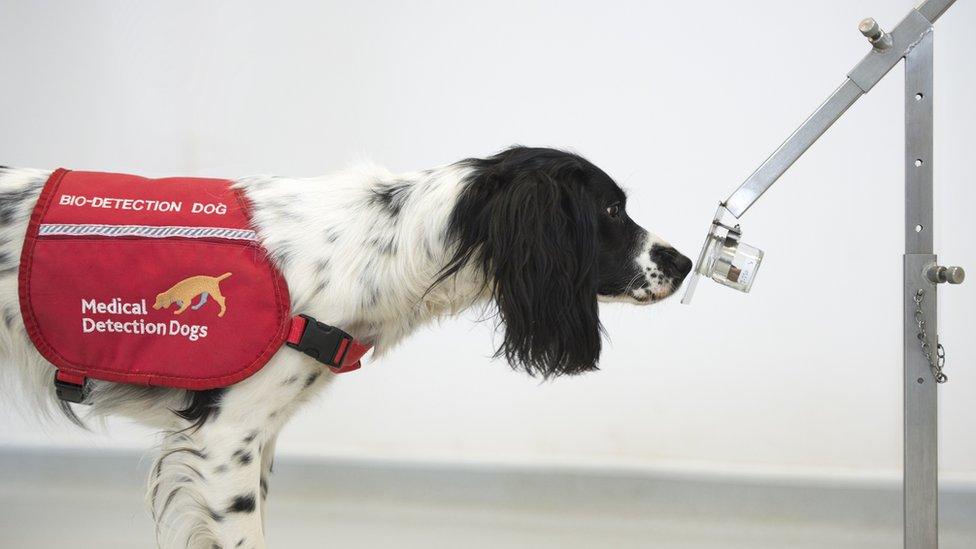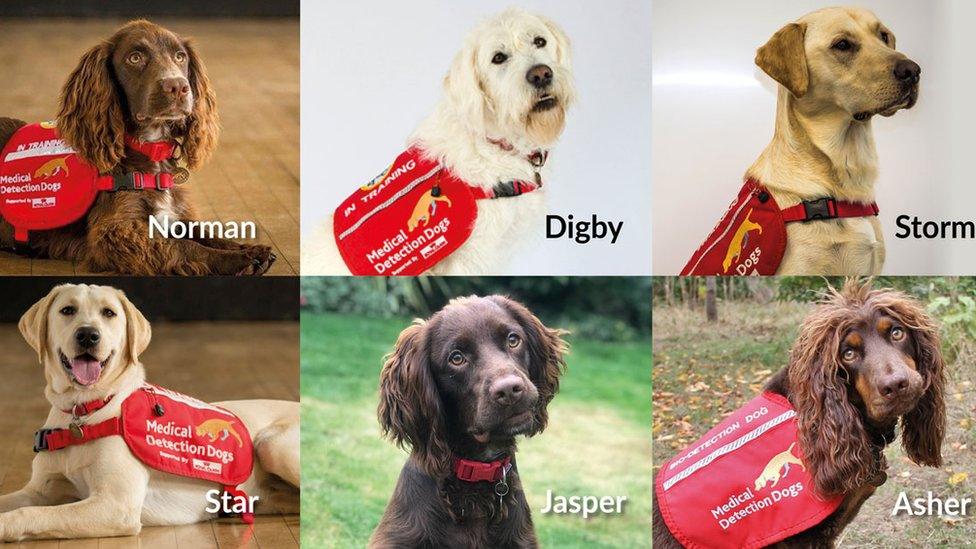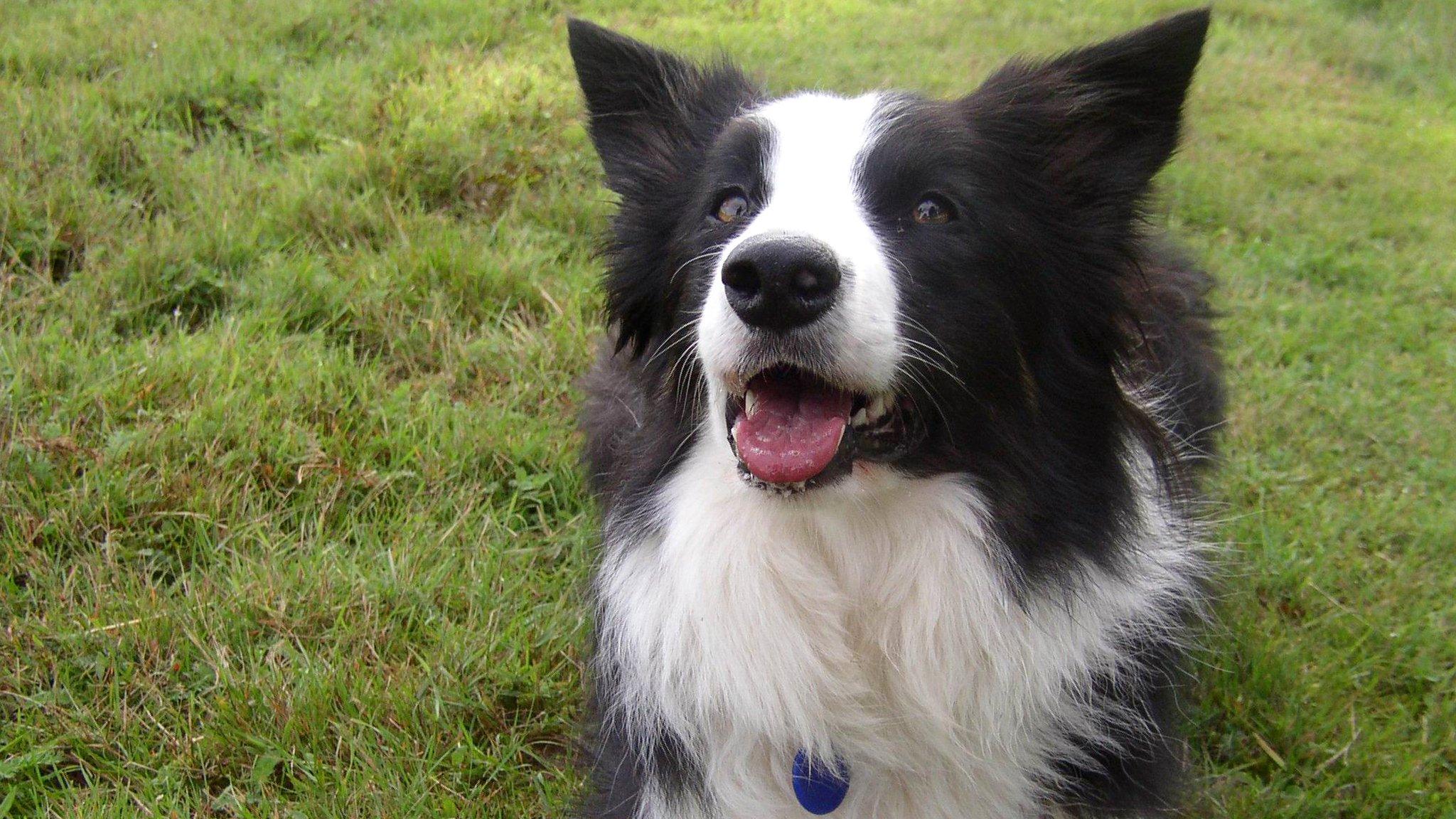Coronavirus: Could sniffer dogs soon be used to test people?
- Published
- comments
This is how the dogs will be trained to try and detect any coronavirus scent
A trial has started to see if dogs can detect coronavirus using their sense of smell.
It's been found that people with conditions like malaria, and Parkinson's and some types of cancer, give off a particular scent, which the dogs are trained to recognise.
It's hoped that the same might be true when it comes to coronavirus.
If the trials using coronavirus samples are successful, the team of six dogs will begin working within four to six weeks.
The government has backed the training project with £500,000 of funding.

It's thought they would mainly be used to test members of the public coming into the country in places like airports, and could each test up to 250 people an hour.
The research is being done by the London School of Hygiene and Tropical Medicine, and Durham University.
Not just any dog can be used. An organisation called Medical Detection Dogs has specially trained animals who already do this kind of work.
How are the dogs trained?

It's hoped the dogs will be able to detect coronavirus before people show symptoms of it.
The team collect odour samples for different medical conditions, in this case coronavirus, also called Covid-19.
The samples are then put on to metal stands along with other scents from people who aren't infected with the virus.
When the dog can tell the odour is from an infected person it is given a treat.

Meet the six dogs who could be put to work testing for coronavirus
By being rewarded every time, it learns to associate that specific smell with a treat so will sniff it out again.
They are also able to detect subtle changes in temperature of the skin, so could potentially tell if someone has a fever.
Dr Claire Guest who trains the dogs says: "The aim is that dogs will be able to screen anyone, including those who are asymptomatic [don't have any symptoms], and tell us whether they need to be tested.
"This would be fast, effective and non-invasive and make sure the limited NHS testing resources are only used where they are really needed."
- Published18 February 2020

- Published18 December 2019

- Published30 August 2016

